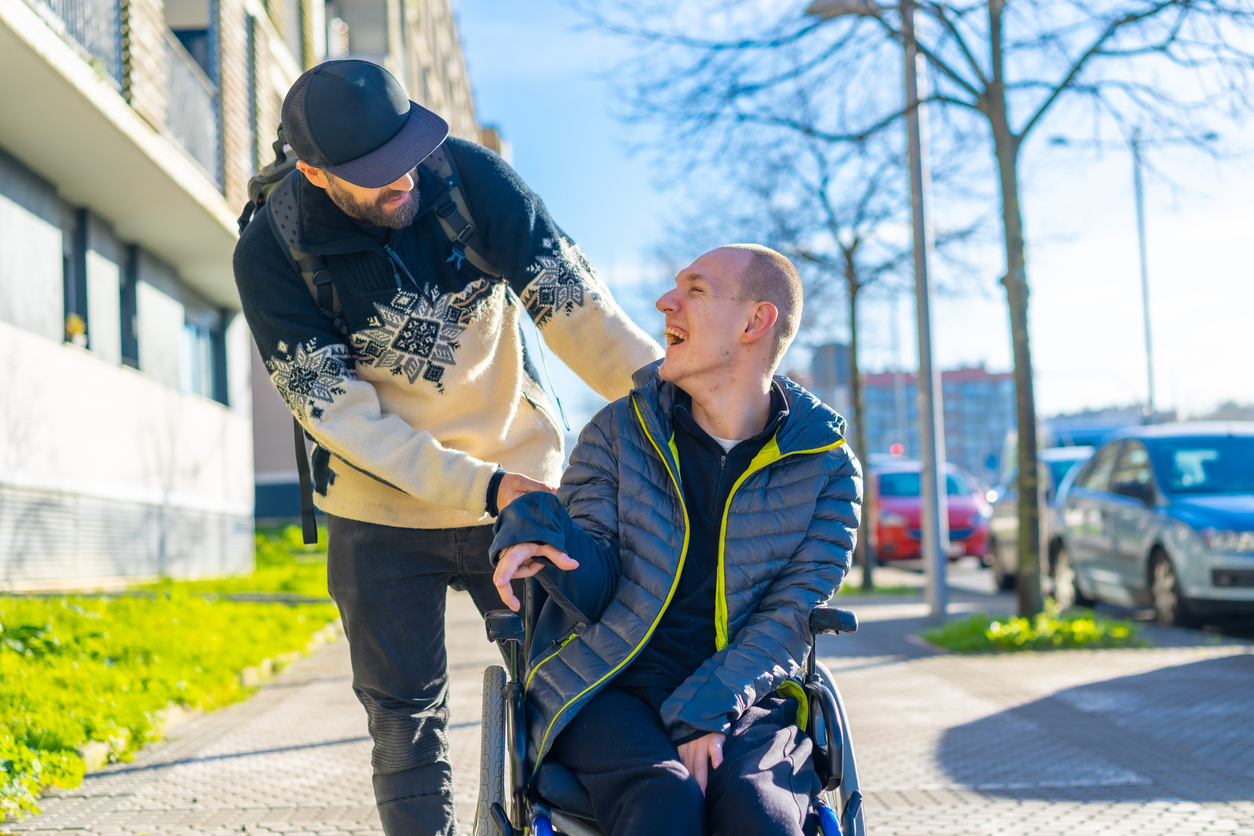Urinary Infection Prevention, Neurogenic Bowel & SCI

According to an article published by the National Center for Biotechnology Information (NCBI), many people with spinal cord injury (SCI) face problems with urinary stasis due to neurogenic bladder.
Neurogenic bladder refers to any changes in bladder function that occur due to spinal cord injury. Depending on your level of injury, two general kinds of bladder dysfunction may occur:
Hyperreflexic Bladder: is also referred to as an overactive, reflex or spastic bladder. This condition leads to reduced control of the bladder – muscles may spasm and contract on their own - causing frequent, small urinations or the inability to empty at all. This is common with SCI above the sacral level.
Areflexic Bladder: results most commonly from an injury in the sacral spinal cord and causes the bladder to lose muscle tone and not contract properly. This causes the bladder to overfill and urine to leak out.
Bladder dysfunction post-SCI ranges from an annoyance to an issue that compromises independence, overall health, and quality of life. It’s important to be informed about bladder function as well as the signs and symptoms of a UTI to take preventative measures as needed.
Signs and Symptoms of a UTI
UTIs are not only bad for your overall wellness, they are uncomfortable and often painful. There are typically signs and symptoms that appear if a urinary tract infection is developing. Familiarize yourself with what they are so you can take preventative measures as needed. Once you have had one bladder infection, you will likely be able to notice the warning signs that another one is on the way. According to Mayo Clinic, signs and symptoms can include:- A strong, persistent urge to urinate
- A burning sensation when urinating
- Passing frequent, small amounts of urine
- Blood in the urine (hematuria)
- Passing cloudy or strong-smelling urine
- Pelvic discomfort
- A feeling of pressure in the lower abdomen
- Low-grade fever
Preventative Measures for Urinary Infection Prevention
There are certain preventative measures that can be taken to help avoid the occurrence of urinary tract infections.Completely Empty the Bladder
Most people with spinal cord injury maintain a bladder management program to help ensure optimum health and wellness. Bladder management programs help prevent the bladder from becoming too full and ensure complete bladder emptying. It’s important to regularly - and completely - empty the bladder to avoid over-distending the bladder and help prevent other health risks, like kidney stones. If the bladder isn’t fully emptied, it can cause a bacteria-friendly environment which can lead to urinary tract infections.Practice Hygiene Practices
It’s always important to practice proper hygiene methods to avoid infection and other health risks, and the same holds true for the bladder. Keeping the area in and around your bladder clean is essential to deter the growth of bacteria. It is also important to use sterile catheters at all times. To avoid introducing bacteria whenever possible, be sure that you, or your caregiver, wear gloves at all times when inserting a catheter or treating the area in and around the bladder.Drink Plenty of Water
Drinking plenty of water is not only necessary for your overall health, it’s also a great way to help prevent urinary tract infections. Non-diuretic fluids, like water, help to flush out bacteria from the bladder and also help prevent other complications, like constipation. In addition to adequate hydration, there are fluids that can increase your risk of UTI. Avoid or moderate beverages with alcohol, caffeine, and high sugar content (frequently found in soda and some juices).Maintain a Healthy Lifestyle
Eating a balanced, nutritious diet and consistently exercising is essential to maintaining a healthy lifestyle. Range of motion exercises is great for people with limited mobility. Fitness helps preserve a healthy immune system that, in turn, can help fight off infections. NOTE: it’s important to speak with a doctor before making any changes in your diet or exercise program to ensure that you are accessing the best available options for you.Bowel and Bladder Care
for all the reasons discussed above, it’s important to have both a bladder and bowel care program in place after spinal cord injury. steps that are taken, like adequate hydration, fitness, nutrition, and proper hygiene, are also all essential elements of an effective bowel management program.Enemeez® Can Help with Proper Bowel Care
the enemeez® formulation functions as a hyperosmotic, stool-softening laxative by drawing water into the bowel from surrounding body tissues. the docusate sodium in this mini enema product prepares the stool to readily mix with watery fluids. not only does it soften and loosen the stool, but it initiates a normal, replicated bowel movement within 2-15 minutes. enemeez® plus contains 20mg of benzocaine, assisting in the anesthetization of the rectum and lower bowel. this formulation was developed for patients who experience autonomic dysreflexia, hemorrhoids, fissures, or painful bowel movements. Visit the Enemeez® website to request free mini-enema samples and learn more about how to use our products. Disclaimer: The material contained is for reference purposes only. Alliance Labs, LLC and Summit Pharmaceuticals do not assume responsibility for patient care. Consult a physician prior to use. Copyright 2020 Summit Pharmaceuticals and Alliance Labs, LLC. Sources:- https://www.ncbi.nlm.nih.gov/pmc/articles/PMC4527903/#:~:text=Approaches%20to%20the%20prevention%20of%20urinary%20tract%20infection%20in%20patients,of%20permanent%20catheters)%20and%20use
- https://www.180medical.com/blog/preventing-utis-spinal-cord-injury/
- https://msktc.org/sci/factsheets/urinary-tract-infection
- https://www.mayoclinic.org/diseases-conditions/cystitis/symptoms-causes/syc-20371306
- https://www.upmc.com/services/rehab/rehab-institute/conditions/spinal-cord-injury/education-spinal-injury/bowel-bladder-and-sexual-function












